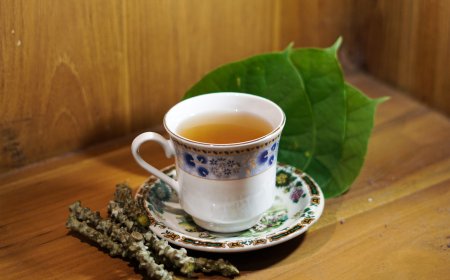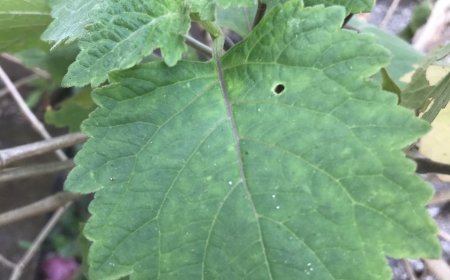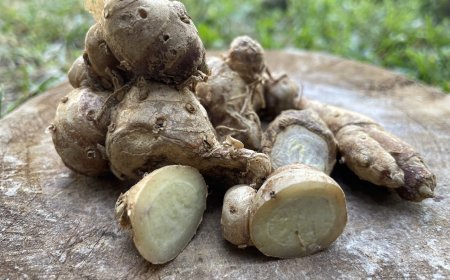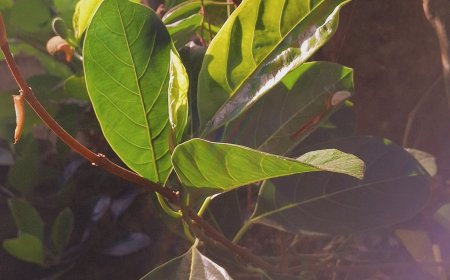Noni: The Magical Plant that Fights Diseases and Improves Health
The uniqueness and benefits of Mengkudu are not only limited to its fruit but also extend to its leaves, which play a significant role in Balinese traditional ceremonies, particularly in the funeral ritual known as 'ngaben.' Despite its bitter taste and strong aroma, the health benefits provided by Mengkudu make it worth exploring. Whether consumed directly or processed into traditional remedies, such as herbal concoctions, for maximum benefits, it is advisable to consult with a healthcare professional if necessary.
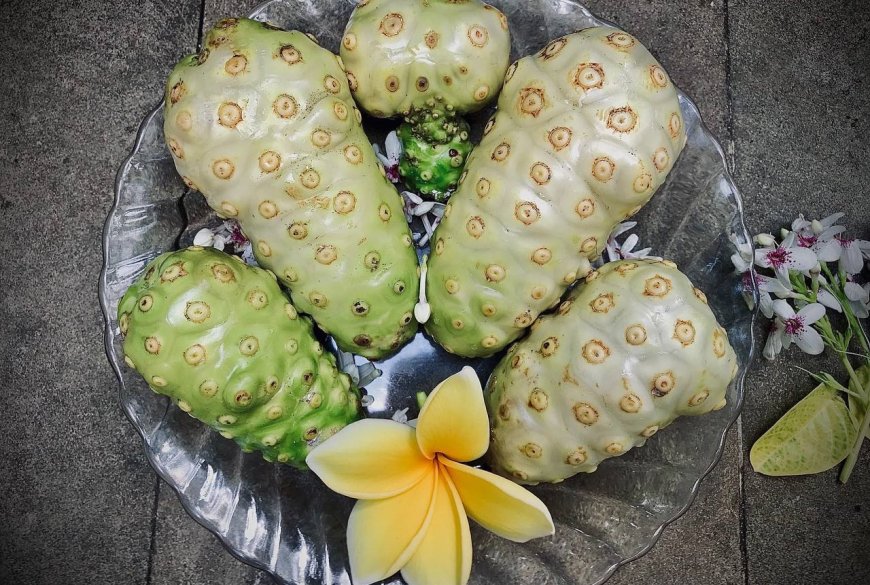
The island of Bali is adorned with a cultural heritage full of purpose and profound meaning. The diversity of traditions and cultures in Bali adds to its extraordinary richness. One longstanding tradition in Bali involves the use of plants for traditional medicine. The Lontar Taru Pramana accurately documents Bali's traditional healing practices, showcasing the wealth of their cultural heritage. Knowledge of how to use traditional medicinal plants has been an integral part of daily life for the people of Bali for years. The combination of natural knowledge and local wisdom has created unique and effective methods of treatment. One such traditional medicinal plant is Noni, scientifically known as Morinda citrifolia.
Unveiling the Nutritional Riches Found in Noni Fruit
Noni is often employed in traditional medicine spanning centuries. Its fruit is rich in nutrients, including vitamin C, vitamin A, potassium, and fiber. However, what truly sets Noni apart is the presence of bioactive compounds such as xeronine, proxeronine, and damnacanthal. These compounds are believed to confer various health benefits to the body.
 Noni Plant (Photo Scurce: Private Collection)
Noni Plant (Photo Scurce: Private Collection)
The Benefits of Noni in Balinese Traditional Medicine
1. Lowering High Blood Pressure: Noni fruit is known for its hypotensive properties, which can help reduce high blood pressure. The active compounds in this fruit contribute to maintaining blood pressure balance.
2. Treatment for Cough and Asthma: The anti-inflammatory and antioxidant content in Noni fruit can help alleviate symptoms of cough and asthma, making it a natural choice for respiratory relief.
3. Expelling Worms: Noni has long been used as an effective antiparasitic agent. The chemical compounds in the fruit can help combat worm infections in the digestive system.
4. Treatment for Diabetes Mellitus: Noni fruit is also known to assist in managing diabetes mellitus. Some studies suggest that compounds in this fruit can help regulate blood sugar levels.
5. Strengthening Bones: Nutrient content such as calcium and phosphorus in Noni fruit can contribute to the formation and maintenance of healthy bones.
The Benefits of Noni Leaves in Traditional Medicine:
Treatment for Tonsillitis and Dysentery: Noni leaves have been used in traditional medicine to address issues such as tonsillitis and dysentery. Their anti-inflammatory and antimicrobial properties aid in the healing process.
Relief from Nausea and Indigestion: Noni leaves can help reduce feelings of nausea and indigestion, making them useful in alleviating digestive disturbances.
Treatment for Diabetes Mellitus: Similar to its fruit, Noni leaves can also assist in the treatment of diabetes mellitus by regulating blood sugar levels.
Fever Relief: The fever-reducing properties of Noni leaves can help alleviate fever and related symptoms.
The Role of Noni in Traditional Ceremonies: Not only its fruit, but Noni leaves also hold significant value, particularly for the Hindu community in Bali. They are utilized in funeral ceremonies within Balinese culture, known as 'ngaben.'
The Role of Usadha in Traditional Healing: Bali has an alternative healing system known as 'usadha,' in addition to the use of Noni in traditional medicine. Usadha is a traditional healing method in Bali that encompasses various techniques such as herbal remedies, massage, meditation, and the use of mantras. Practitioners of usadha often incorporate Noni in formulating herbal concoctions to maintain health and address various health issues.
Although Noni has a bitter taste and a somewhat pungent odor, it possesses numerous health benefits. To maximize its benefits, Noni is best consumed directly. Nevertheless, there are ways to process Noni for easy consumption while still obtaining optimal benefits.
 Loloh Noni Fruit (Photo Scurce: Private Collection)
Loloh Noni Fruit (Photo Scurce: Private Collection)
One method of preparing Noni fruit as a herbal remedy to address indigestion, flu, and fever requires the following tools and ingredients: One Noni fruit, one rhizome of galangal, water, a knife, a strainer, a stove, and a glass. Here are the steps to make it.
1. Prepare the Ingredients: Get 1 Noni fruit and 1 rhizome of galangal.
2. Selection and Cleaning of Ingredients: Choose ripe Noni and fresh galangal. Clean both by washing under running water to remove dirt and dust.
3. Cutting the Ingredients: Cut Noni into small pieces for easier boiling. Slice the galangal into thin pieces.
4. Water Preparation: Pour 2 glasses of water into a pot or heat-resistant container.
5. Boiling: Add Noni and galangal pieces to the water. Boil all ingredients over medium heat until it reaches a boil.
6. Liquid Reduction: Let the mixture boil until only 1 glass of liquid remains. This may take some time, depending on the heat.
7. Straining: Strain the herbal liquid using a strainer or clean cloth to separate the residue and obtain the liquid.
By following these steps, you can create a herbal remedy from noni and galangal to alleviate indigestion, flu, and fever in a traditional manner. Don't forget to consult with a healthcare professional if symptoms persist or worsen.















































